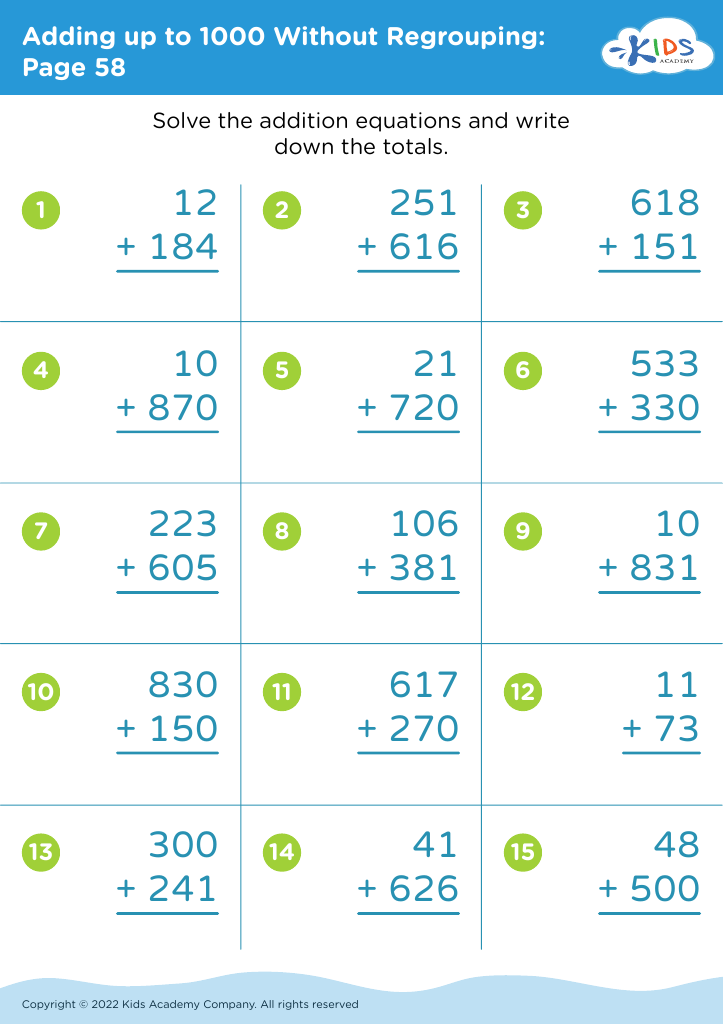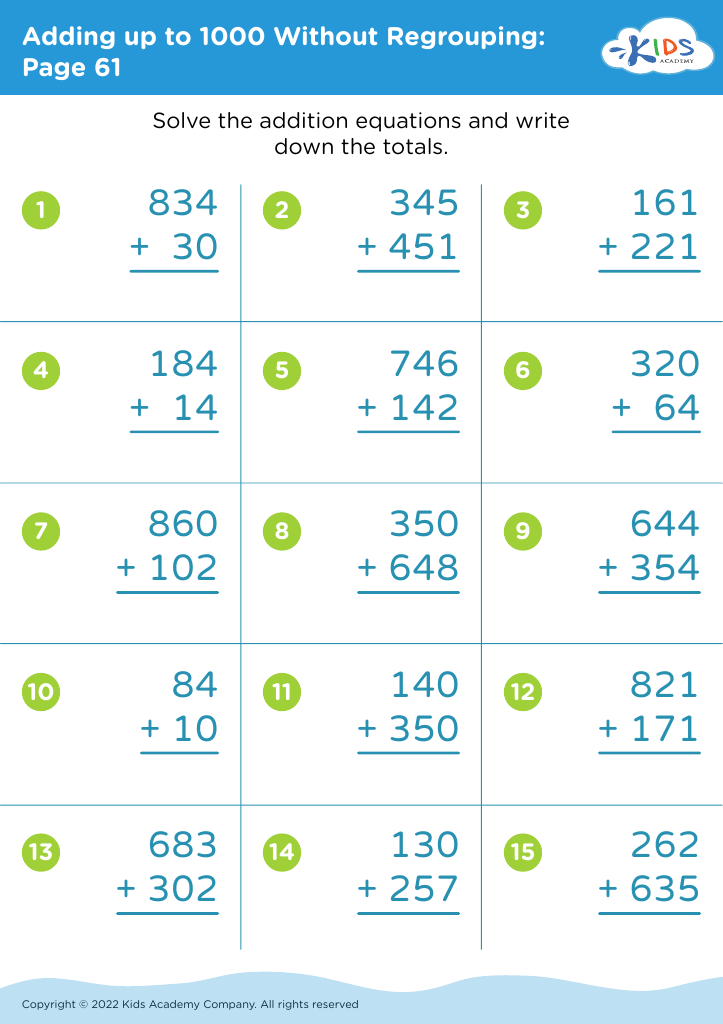Recognizing shapes Adding up to 1000 Without Regrouping Worksheets for Ages 8-9
3 filtered results
-
From - To
Discover our engaging "Recognizing Shapes Adding Up to 1000 Without Regrouping Worksheets" designed for children aged 8-9! These worksheets enhance spatial awareness and mathematical skills through the exciting lens of shape recognition and addition. Students will explore various geometric shapes while practicing their addition skills without regrouping, ensuring a solid foundation in math concepts. Each worksheet encourages critical thinking and helps children connect shapes with their numerical values, making learning both effective and enjoyable. Perfect for classroom use or at-home practice, these resources foster independent learning and boost confidence in math. Unlock the potential of your young learners today!
Recognizing shapes and understanding the concept of addition without regrouping, particularly when adding up to 1000, are foundational skills for children aged 8-9. Parents and teachers should prioritize these skills for several reasons.
Firstly, recognizing shapes enhances spatial awareness and provides a foundation for geometry, a crucial component of mathematics. It helps children understand their environment better and develops problem-solving skills, essential in everyday life and future math courses.
Secondly, mastering addition without regrouping enhances numerical fluency; this is vital for their confidence in math. At ages 8-9, when children encounter larger numbers, the ability to add efficiently lays the groundwork for more complex arithmetic operations. It prepares them for challenges in higher grades, where regrouping and multi-digit arithmetic come into play.
Moreover, both skills support cognitive development. Engaging in shape recognition fosters critical thinking, while practicing addition bolsters cognitive processing speeds.
Lastly, strong math skills contribute to better academic performance across subjects, improving overall learning outcomes. When parents and teachers emphasize these foundational skills, they are investing in a child’s future academic success, fostering a love for math, and equipping children with the essential tools to navigate the world around them confidently.













